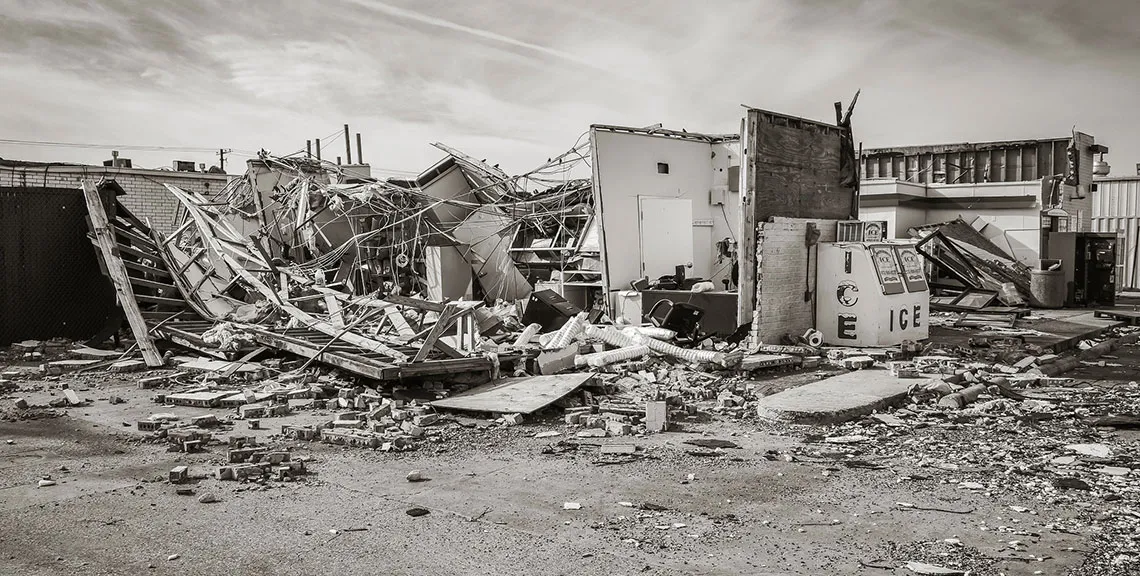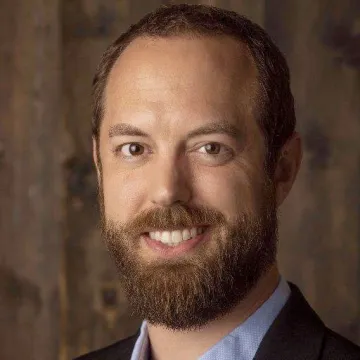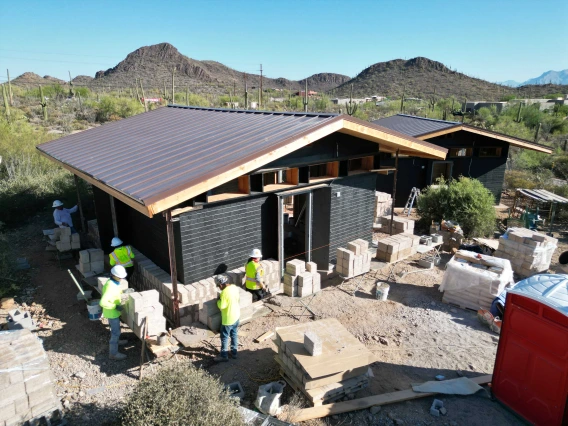Dallas, Texas Turns to CAPLA Planning and Sustainable Built Environments Professor and ULI for Guidance Following Natural Disasters

Former 7-Eleven on Walnut Hill Lane in Dallas, Texas, following October 2019 tornado. Photo by David Swinney Photography, courtesy Flickr.
“Climate is increasingly becoming part of the economic competitiveness discussion,” says Ladd Keith, assistant professor of planning and sustainable built environments in the College of Architecture Planning and Landscape Architecture at the University of Arizona, in a February 24, 2021 article in the Dallas Business Journal.

Ladd Keith, Assistant Professor of Planning and Sustainable Built Environments
The article asks whether Dallas will see the recent wave of corporate relocations to Texas slow following February’s substantial cold-weather power outages and grid failures.
Keith believes they could, noting how some companies considering relocation to other cities—Miami, which is at risk to sea-level rise, for example, and Phoenix, which is at risk from high heat—will take into account the changing climate and subsequent natural disasters and related economic and other losses in their decisions.
Keith’s insight follows from his work chairing an Urban Land Institute Advisory Services Panel, which recently released the report, Dallas, Texas: Tornado Recovery Emphasizing Urban and Climate Resilience around the Walnut Hill/Denton Drive Dallas Rapid Transit Station.
Keith is interviewed in the February 22, 2021 edition of Dallas Business Journal on the subject of rebuilding a Dallas neighborhood surrounding a rapid transit station in the aftermath of a tornado that devastated the area in October 2019.
In evaluating the area and making its recommendations, the ULI Advisory Services Panel focused on positioning the neighborhood—which is close to downtown Dallas—“for long-term growth that’s going to come with being connected on the [Dallas Area Rapid Transit] station,” says Keith in the interview. “The DART station is a huge opportunity because the infrastructure is already there.”
The panelists found that “the city and other stakeholders should center on the needs of people in the community, addressing safety and climate concerns and building upon the areas of strength,” according to the interview.
The report, which was sponsored by the Dallas Office of Economic Development, provides a number of recommendations, including planting an urban forest to replace lost trees while combating extreme heat and mitigating flooding, establishing a business improvement district to secure the funding (and business and political will) to make necessary changes, and implementing easy-access lending programs to support small-scale and young developers as well as developers of color.
Other ULI Advisory Services Panelists were Pegy Brimhall, principal of Figurd Development’s San Antonio office; Jill Allen Dixon, associate principal and planner in Sasaki’s Urban Studio; Chanceé Lundy, environmental engineer and owner of the sustainability-consulting planning and design studio Nspiregreen; Riki Nishimura, urban strategist and principal at Populous; and ULI project staff Lauren Callaghan, director for Advisory Services, and August Williams-Eynon, senior associate for Urban Resilience.
Keith, who joined CAPLA in 2009, is an interdisciplinary researcher working at the intersection of urban planning and climate science and explores how climate action planning can make more sustainable and resilient cities. With over a decade of experience working with diverse stakeholders in cities across the U.S. solving complex urban challenges, he is particularly interested in research that informs practice. His current research explores the emergent planning, design and governance of cities for extreme heat. In addition to founding and leading CAPLA’s Sustainable Built Environments program, Keith teaches courses on climate action planning as well as public participation and dispute resolution.



